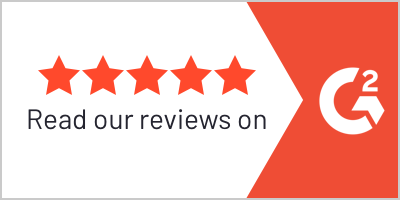Want to know the hard truth about about customized sales training? The hard truth? Most traditional sales training fails because it’s not built for your specific team, your unique market, or your actual sales challenges. I’ve seen too many companies waste money on generic, one-size-fits-all sales training programs that deliver temporary enthusiasm but little lasting impact.
Today, I want to break down why customized sales training consistently outperforms traditional approaches, backed by real examples from companies we’ve transformed through tailored training at The Harris Consulting Group and our 4-Week Sales Training and Reinforcement Program.
The Problem with Traditional Sales Training
When it comes to sales coaching and consulting best practices, choosing the best sales training for your organization is not simply a check the box exercise. It’s not just about coaching the SDRs or AEs to simple best practices. Traditional sales training typically follows a predictable pattern: Your team sits through a day or two of blah, blah blah, generic slides that are often more about the ego of the presenter and their belief in how smart they are. Perhaps some role-playing that is also equally generic and based on hypothetical scenarios, and then returns to work with a binder full of materials that’s forgotten within weeks, if not days.
These cookie-cutter programs assume all sales organizations face identical challenges. They present universal “best practices” without considering:
- Your industry nuances and buyer personas
- Your sales cycle length and complexity
- Your product/service value proposition
- Your competitive landscape
- Your team experience levels and skill gaps
- Your company culture and communication style
The result? Limited adoption, quick regression to old habits, and $0 ROI on your sales training investment.
Why Customized Sales Training Delivers Superior Results
The top sales training programs take a fundamentally different approach. Rather than forcing your team into a pre-determined program, we adapt the training to address your specific challenges, reinforce your strengths, and align with your organization’s goals and culture.
Let me walk you through five unique and game changing benefits of customized sales training with real examples from my work with clients across industries.
Benefit #1: Customized Sales Training Allows for Authenticity at the Company and Individual Level
One of the biggest concerns leaders and sales team members have when it comes to sales training is around authenticity. This is what makes customized sales training so important.
It’s important for the value propositions and messaging of the company to be authentic and it’s equally important that each member on the sales team sounds authentic to their own humanity. How Tom says something is different than how Melissa or Sarah may say something, which is also different from how Richard says something.
There is a big difference between having sales scripts and sounding scripted. Nobody should sound scripted, ever. If the sales training program does not include authenticity as one of their best practices then we recommend you find one that does.
Benefit #2: Customized Sales Training Addresses Your Team’s Actual Skill Gaps (Not Generic “Best Practices”)
Generic sales training programs cover broad topics assuming everyone needs improvement in the same areas. Customized training begins with assessment to identify your team’s specific strengths and weaknesses.
Real Example: When working with a SaaS company targeting the healthcare sector, the initial assessment revealed their team excelled at product knowledge, industry knowledge. However they struggled with building rapport, earning the right to ask questions, and knowing when to ask those questions. More specifically they struggled with deep discovery skills that did not really address the economic impact their prospects had in relation to the problem their prospects wanted to solve. They also struggled with objection handling.
With this information in mind, we crafted a customized sales training program that not only taught the sales team how to get better at each of these challenges, it also improved their courage, confidence, want and desire to implement the changes. We taught them what to say, how to say it, and when to say it. And it was all based on their specific value prop, ICP (Ideal Customer Profile), and the actual deals in their pipeline.
The result? Overnight, literally the next day, sales conversations became more engaging. Deeper discovery happened, the value of service in relation to price was more comfortable and more qualified opportunities were fruitful in the pipeline. Additionally, their sales cycle shortened as reps confidently addressed technical concerns earlier in the process rather than involving solution engineers for every detail.
Benefit #3: Customized Sales Training Incorporates Your Actual Sales Process, Tools, and Language
One of the biggest failures in traditional sales training is the disconnect between what’s taught and your daily sales operations. Customized training incorporates your specific CRM workflow, sales methodology, ICP (Ideal Customer Profile), and company terminology.
Real Example: For a manufacturing equipment provider, we noticed their Salesforce implementation had custom fields tracking exit criteria that reps rarely used. Rather than teaching generic discovery frameworks, we built customized discovery questions that directly populated these specific exit criteria to create a naturally flowing conversational selling dialogue.
Within weeks their forecasting improved because the team was asking the right questions during discovery and subsequently win rates increased as better discovery information led to more accurate proposals. Reps didn’t need to “translate” between training concepts and their actual workflow—the customized sales training used their exact process and tools.
Benefit #4: Customized Sales Training Aligns with Your Unique Buyer’s Journey and Market Position
Every company has a unique market position and buyer’s journey. In fact, we tend to think there is no such thing as a “Buyer’s Journey”, we believe there is only a “Buyer’s Experience” as it goes through a journey created by Sales and Marketing. Generic sales training rarely addresses the specific challenges your prospects face or how your solution uniquely solves them.
Real Example: A client was struggling to differentiate from competitors offering similar products. Traditional training would focus on generic differentiation tactics using old school “battle cards” providing a bullet point by bullet point comparison of what to say when it comes up. That includes a bowl of hope-i-um that reps and sales leaders smoke in the hopes the prospect does not bring up something your service cannot do but your competitors can.
Instead, we mapped talked tracks with the right ways to respond to questions like,
- “Can your service do ____?”
- “Why should we choose you over your competition?”
- Avoiding the, “We have a work-around” answer.
All of this improved the buyer’s experience through the seller’s journey that allowed for direct, open, and honest dialogue. Real conversations were had that went beyond the surface level of the competition and dove deep into what made these specific topics matter the most to the prospect. And more importantly how important were those topics to actually making a decision? Often times, the specific feature or question about your competitor does not even mean the competitor is really a preferred vendor. The prospect is simply curious, or perhaps they are not even liking the competitor on various levels.
This unique approach positioned them as consultative experts rather than product pushers and hope-i-um smokers. The team saw an increase in competitive win rates within the first quarter after implementation.
Benefit #5: Customized Sales Training Creates Consistency Across Teams While Respecting Specialized Needs
Large organizations often have specialized sales teams (enterprise, mid-market, SMB) with different challenges not only in the skillsets but also the tenure and experience levels of their sales team members. Customized sales training builds a consistent sales philosophy while acknowledging the unique challenges each group faces. Customized sales training allows your organization and the content of the training to “meet” your individual sales reps needs at a 1:1 level while also providing a common language within the organization that does not feel scripted, institutionalized, and irrelevant.
Real Example: Working with a technology provider with both direct and channel sales teams, we observed tension between the groups and inconsistent customer experiences. Rather than forcing identical approaches, we developed a core training foundation with specialized modules for each team.
The direct team received advanced training on complex, multi-stakeholder negotiations, while the channel team focused on partner enablement and co-selling strategies. By acknowledging their different challenges while creating a shared language and approach, the client realized significantly reduced internal friction.
Benefit #6: Customized Sales Training Evolves Based on Your Market Changes and Sales Results
Perhaps the most significant advantage of customized sales training is its ability to evolve as your business changes. Unlike static training programs, customized approaches adapt to market shifts, competitive moves, and emerging team needs.
Real Example: For a B2B Saas service provider, we initially developed a training program focused on new business acquisition. When their market became saturated six months later, we quickly pivoted their training focus to customer expansion strategies without abandoning the core methodology.
By analyzing their changing win/loss patterns and evolving competitive landscape, we adapted role plays, call scripts, and coaching guides to this new reality. This adaptation helped them increase customer expansion revenue significantly when new logo acquisition became increasingly difficult.
So yes, customized sales training for customer success teams as well. So often many of the skills training in a sales training program overlap with the customer success team as well. There needs to be a tweak for specific customer success conversations to ensure it’s customized properly. It’s not that hard, simply make sure the sales training organization you are working with has evidence to doing this.
The Implementation Difference: Beyond Content to Context
If content is king, then context is the kingdom.
What truly separates effective customized sales training isn’t just tailored content—it’s contextualized delivery and reinforcement. At The Harris Consulting Group, we don’t just customize the what of training; we customize the how based on your team’s learning preferences and organizational realities.
This includes:
- Customized reinforcement schedules based on your sales cycle length
- Role-specific coaching guides for frontline managers
- Integration with your existing meeting cadences rather than creating separate “training time”
- Adaptation to your communication channels (Slack, Teams, email culture)
- Custom-built practice scenarios using your actual customer stories and objections
- Programs that focus on all learners, visual, auditory, and kinesthetic
- Tangible sales training workbooks as an asset for each team member
Making the Shift: From Traditional to Customized Sales Training
If you’re currently using traditional sales training approaches, you’re likely experiencing some common symptoms:
- Initial enthusiasm followed by quick regression to old habits
- Inconsistent adoption across team members
- Difficulty measuring tangible impact on sales results
- Training that feels disconnected from daily selling activities
- “That wouldn’t work with our customers” feedback from reps
Making the shift to customized sales training doesn’t necessarily mean abandoning all aspects of your current approach. Often, it means evolving your training to better reflect your specific challenges and opportunities.
The Harris Consulting Group Approach to Customized Sales Training
At The Harris Consulting Group, our customized sales training methodology follows a distinct process:
- Diagnostic Assessment: We evaluate your current sales process, analyze call recordings, review win/loss data, and interview stakeholders to identify specific improvement opportunities.
- Custom Program Development: Rather than pulling modules off the shelf, we develop training that addresses your specific challenges using your terminology, tools, and scenarios.
- Multi-Format Delivery: We deliver training through the optimal mix of live workshops, virtual sessions, one-on-one coaching, and self-paced reinforcement tailored to your team structure and working environment.
- Manager Enablement: We provide your frontline managers with observation frameworks and coaching guides specific to your sales methodology.
- Measurement and Refinement: We establish clear success metrics tied to your business objectives to help you track your own ROI and Economic Impact
This approach ensures that training becomes a strategic advantage rather than a temporary motivational event.
Conclusion: The Future ofCustomized Sales Training is Customized
As markets become more competitive, AI enters the sales arena, and buyers more sophisticated, the gap between traditional and customized sales training results will only widen. Organizations that invest in training tailored to their specific challenges will consistently outperform those relying on generic approaches.
In my experience working with hundreds of sales organizations, the ROI difference between customized and traditional training can be 3-5X in terms of actual revenue impact. More importantly, customized training creates sustainable competitive advantages that generic training simply cannot deliver.
As my good friend, Andy Paul says, “If you simply check a box that you did ‘sales training’, you aren’t fooling anyone, especially your sellers. You really should know better.”
If you’re ready to explore how customized sales training can transform your team’s performance, I invite you to reach out for a diagnostic conversation. Let’s discuss your specific challenges and how a tailored approach might help you overcome them. Contact The Harris Consulting Group for a FREE consultation.







